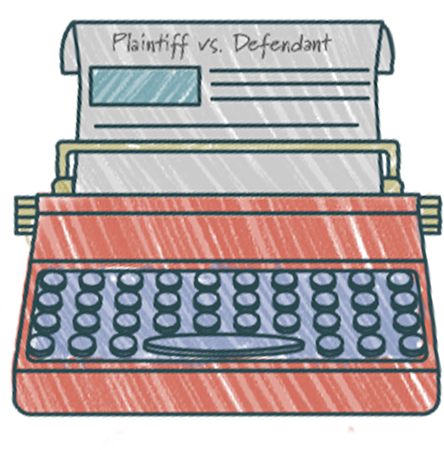

 QUEENS LOCATION
QUEENS LOCATION
118-35 Queens Blvd Tower,
Suite 400
Queens, NY 11375
(718)-751-0226
By Appointment Only
Contact Us
- HOURS OF OPERATION
- Monday – Friday – 8:30 AM – 8:30 PM
- Saturday – Sunday – 10 AM – 6 PM

The Bank is Threatening to Foreclose – What’s the Best Way of Letting My Home Go?
If you live in New York, and are currently dealing with the threat of having your house foreclosed on, there are several non-retention options for you to think about. What is a Non-retention Option? Sometimes, no matter how hard you want to stay in your home, the circumstances just no longer work for you. This is when people threatened with foreclosure look at non-retention options. In “bank speak”, non-retention options are ways you stop a foreclosure process by giving up the right to your property. These options include: A Voluntary...

What Do I Do If One of My Commercial Tenants Declares Chapter 11?
If you own commercial real estate in New York, and one of your tenants just declared Chapter 11 bankruptcy, you need to know your rights and responsibilities. When Commercial Tenants Go Bankrupt No one runs a business expecting it to fail. Your tenants signed their leases fully believing that they would have no trouble paying your rent. But things can happen — from pandemics, to recessions, to sudden illnesses. If you have been notified that one of your tenants declared Chapter 11, this is what you should expect. Automatic Stay...

The Bank is Threatening to Foreclose – How Can I Keep My Home?
If you live in New York, and are currently dealing with the threat of having your house foreclosed on, there are several retention options for you to think about. What is a Retention Option? In “bank speak”, retention options are ways for a homeowner to remain in their home, even if they’re behind on their mortgage payments. These options include: Mortgage Loan Modification Friendly Sale / Friendly Short Sale Payoff / Short Payoff Reinstatement / Short Reinstatement Forbearance Refinancing Mortgage Loan Modification This option allows you to rework your current...

Acceleration is an “Overt Act” to Demand the Full Amount Due Under the Mortgage Loan
The “Engels case” on the Court of Appeals level was not completely reversed by the Foreclosure Abuse Prevention Act (“FAPA”) and at least half of it is still valid law. The Court of Appeals in the “Engels Case” consolidated x4 cases. Two x2 cases were focused on what is an acceleration; the other x2 cases were focused on whether the lender has the corollary right to “de-accelerate”. FAPA reversed the “de-acceleration” argument ONLY. The “acceleration” definition is still good law. In that 1st part of the decision the Court...

NYS Business Law Section 9-x: A Strong Pandemic Remedial Statute Dealing with Forbearance and Post-Forbearance Solutions, for Covid Caused Mortgage Defaults for Residential Mortgages, but Limited to NYS Regulated Mortgage Servicers and/or NYS Banking Organizations, that May Require Litigation in the Courts to Determine the Extent of the Relief Given by the Legislature
1. WHAT IS NEW YORK BUSINESS LAW SECTION 9-X? Section 9-x of the New York State Banking Law {see, SECTION 9-X https://www.nysenate.gov/legislation/laws/BNK/9-X }, was signed into law on June 17, 2020, by New York Governor Andrew Cuomo as part of his signing Senate Bills 8243C and 8428. The section seeks to deal with Covid-19 caused mortgage arrears as follows: a) Forbearance Availability - By making applications for forbearance readily available and granting mortgage forbearance for persons with Covid hardship, initially for 180 days, but with proof of continuing hardship...

What is the Corrections Act and How Can it Help My Bankruptcy Case?
If you live in New York and wanted to restructure your debt through Chapters 11 or 13 bankruptcy, the Corrections Act has, at least temporarily, lifted one of your roadblocks. The Challenge of Debt Limits When it comes to both personal and small business bankruptcy, the options are complete liquidation (Chapter 7) or restructuring your debt (Chapters 11 and 13). The challenge with restructuring is that there are debt limitations imposed. Up until June 21, 2022, individuals with unsecured debts over $465,275.00 and secured debts of over $1,395,875 were ineligible...

What Happens if I Don’t Pay My New York Property Taxes?
If you live in New York, and are behind on your home’s property taxes, you risk having your home foreclosed on. This can happen even if you are up to date on your mortgage payments or own your home outright. What Will My County Do If I’m Behind on My Taxes? In New York State, property taxes are collected semi-annually by your county. Each county has their own protocols about what to do with delinquent property taxes, but they usually follow a similar path. After a specific deadline, if you...

The Foreclosure Abuse Prevention Act as a Legislative Correction to Controversial NYS Court Cases, Concerning the Foreclosure Statute of Limitations, Including the Court of Appeals Decision in Engel.
Background and History of the FAPA: The NYS Legislature’s Strengthening of the Foreclosure Statute of Limitations The Foreclosure Abuse Prevention Act (the “FAPA”) is a recent New York State Law dealing with foreclosure procedural rules where the New York State Legislature (the NYS Senate and Assembly) passed bills that were just signed into law by the NYS Governor, which are designed to be a legislative correction to NYS judicial decisions, affecting the statute of limitations in foreclosure actions, including the NYS Court of Appeals decision in Engel and associated cases. The FAPA (Senate Bill S5473, passed...

What’s the Difference Between Residential and Commercial Mortgages When It Comes to Foreclosures?
If you live in New York and are interested in real estate investing, you may be able to use a commercial mortgage on an investment property. But if things go wrong, there are specific differences between the foreclosure process of residential and commercial mortgages. Residential vs. Commercial Mortgages Residential mortgages usually offer better rates and terms, so commercial mortgages tend to be only used for commercial ventures. However, there can be areas of overlap: When you want to buy a residential structure (up to four units in the building) to...

What to Know About Foreclosures on Reverse Mortgages
If you or an elderly parent have (or are thinking about getting) a reverse mortgage, there are things you need to know about how these types of mortgages work. And yes, you may still have to deal with the threat of foreclosure. What is a Reverse Mortgage? With inflation skyrocketing, many seniors on fixed incomes are struggling with the rising cost of living. If you are a homeowner of 60 or over, you may be eligible for a reverse mortgage. Unlike a traditional mortgage, where you are given a lump...

What is a Foreclosure Sale or a Foreclosure Auction in a Foreclosure Case?
If you live in New York, and are going through the foreclosure process, there are a number of terms you are going to come across. Today we’ll be talking about the Foreclosure Sale (or Foreclosure Auction) and what it means to you in your foreclosure case. The Final Stages of the Foreclosure Process A foreclosure sale or foreclosure auction is the last step in a foreclosure proceeding before the property’s ownership is forced by law to be transferred. The foreclosure sale has 4 stages: the notice period; the auction; the...

What is a Motion for a Judgment of Foreclosure and Sale in a Foreclosure Case?
If you live in New York, and are going through the foreclosure process, there are a number of terms you are going to come across. Today we’ll be talking about a Motion for a Judgment of Foreclosure and Sale and what it means to you in your foreclosure case. The Ending Stages of the Foreclosure Process In a previous post, we spoke about Referee Hearings and Notices of Computation. Once the Referee has reported their finding to the court (and your lenders and your foreclosure lawyer), and everyone has accepted...

What are a Referee Hearing and Notice of Computation in a Foreclosure Case?
If you live in New York, and are going through the foreclosure process, there are a number of terms you are going to come across. Today we’ll be talking about a Notice of Computation and a Referee Hearing and what they mean to you in your foreclosure process. How Does the Court Determine How Much I Owe? In a foreclosure proceeding, the court needs to determine how much you owe to the lender/bank that holds your mortgage. The court wants to know the total amount, including the mortgage loan (balance...

What is a Summary Judgment Motion in a Foreclosure Case?
If you live in New York, and are going through the foreclosure process, there are a number of terms you are going to come across. The Motion for Summary Judgment is usually the main motion in a foreclosure case, and how it goes in terms of what it says, how it is defended, and how it is decided will determine the course of your foreclosure case. What Is a Motion for Summary Judgment? Trials for an entire foreclosure case are unusual since foreclosures are usually disputed over the law and...

Can I Stay a Foreclosure Sale Without Declaring Bankruptcy?
If you live in New York, and your lender is trying to sell your house out from under you, you have options other than bankruptcy to have the courts stay (stop) the sales process. What is an Order to Show Cause? Besides declaring bankruptcy, an Emergency Order to Show Cause (OSC) is the other main method of staying a foreclosure sale. This method involves non-bankruptcy state law but is discretionary, meaning unlike the automatic stay in a bankruptcy case, a stay under an OSC needs to be court ordered. Unlike...

New York Lowers the Interest Rate on Consumer Debt Collection Cases
If you are struggling with consumer debt, are thinking about bankruptcy, and you live in New York, you need to ask your debt settlement lawyer about the new lower interest rates on money judgments. What is this new law on lower interest rates? Governor Kathy Hochul passed Senate Bill S5724A (https://www.nysenate.gov/legislation/bills/2021/S5724) lowering the interest rate paid on money judgments arising out of consumer debt. This new statute, CPLR § 5004 (https://www.nysenate.gov/legislation/laws/CVP/5004), lowers the interest rate that debtors have to pay on judgements against them from an average of 9% down...

 (631)-271-3737
(631)-271-3737 (718)-751-0226
(718)-751-0226 (516)-307-0262
(516)-307-0262 (347)-508-9316
(347)-508-9316





